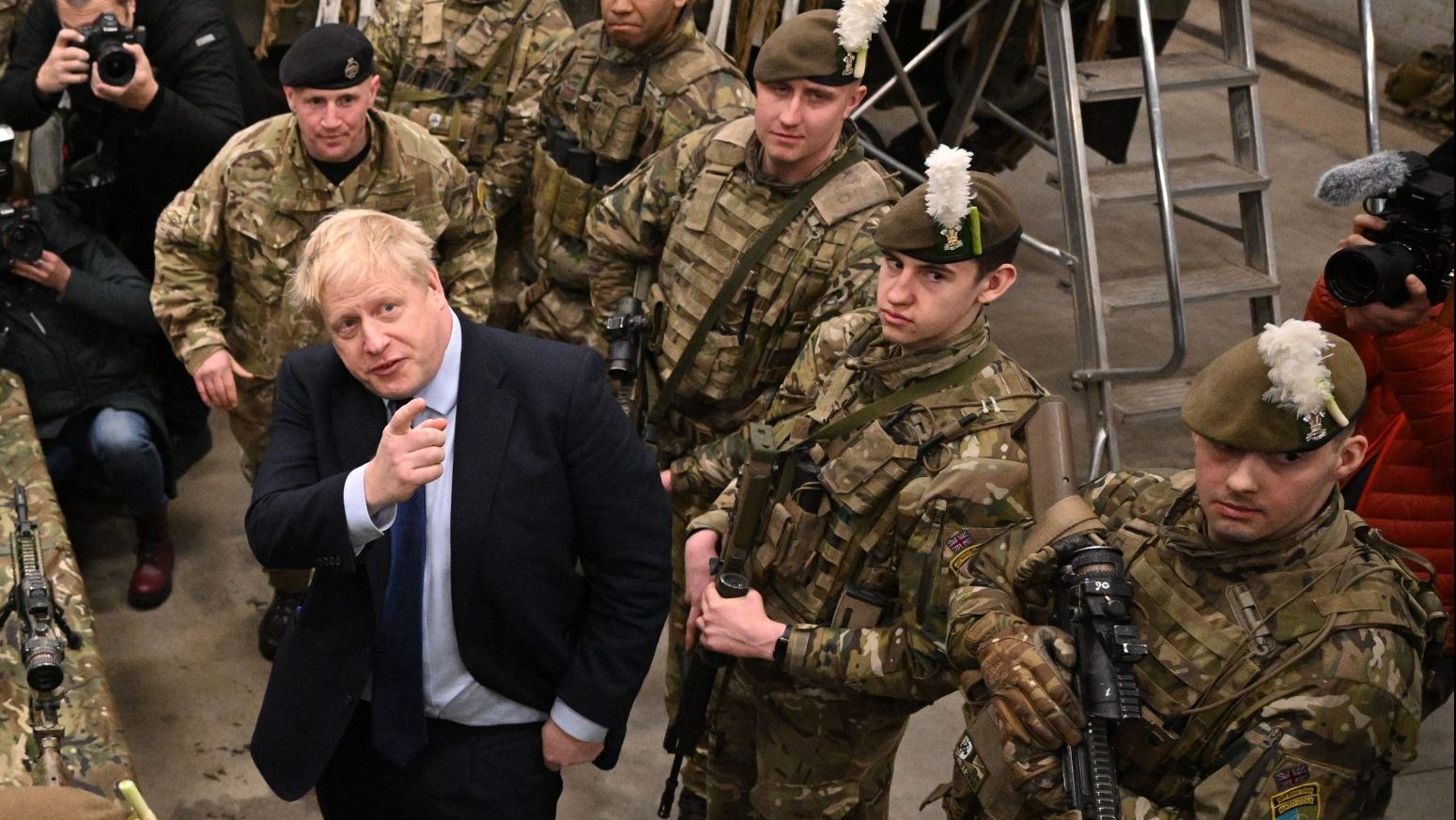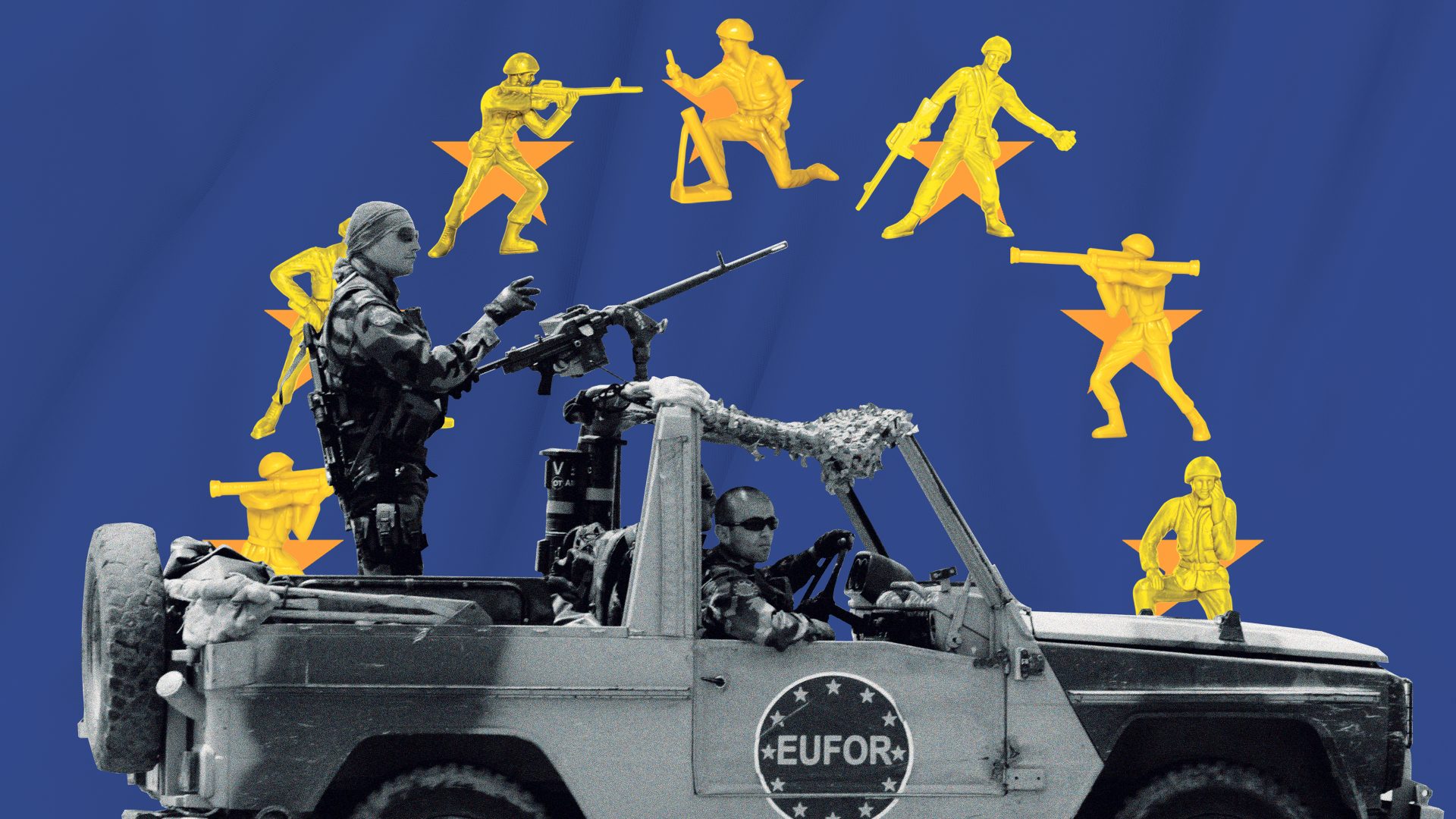When the luckiest break you’ve had for years comes in the form of a major and tragic conflict, it says something about the course of your life – but that’s what seems to be the case for Boris Johnson. In a flash, week after week of headlines about the Sue Gray report and the Met Police investigation into the prime minister vanished into nothing, overwhelmed by the most monumental world events. A prime minister who has always been fixated with Churchill finds himself with his wartime moment.
The frustration for opponents of Johnson – or even just those who dislike him, which is by now a clear majority of people in the country – is that the Teflon man feels to have got away with everything again.
The reality for Johnson is much different: Neither the Gray report nor the police investigation has gone away. Johnson’s personal popularity will never return to what it once was. Ukraine has no chance of being the Falklands – and it’s a crisis that draws particular attention to the prime minister’s personal failings.
What looks like a reprieve is at best temporary. Johnson is a man who has got himself into No 10 only to find himself essentially trapped in a job that was nothing like what he thought he was getting – and left him under virtual house arrest in the process.
The Boris Johnson that existed just before he became prime minister has all but disappeared: Johnson earned £5 a word as a Telegraph columnist, was one of the country’s most recognised and popular politicians, and could leverage that into lucrative public speaking gigs, as well as six-figure book advances for his pop but cod history writing.
Despite all of this, Johnson was also perennially broke – not least thanks to his latest divorce – leaving taking the premiership something of a gamble that he could raise his profile and his status still further, so as to be able to earn more after being in office than before. He certainly had no shortage of predecessors who’d cashed in nicely to look at.
The reality of being prime minister has certainly worked out nothing like Johnson would have hoped. As mayor of London, he wanted to be the face of anything fun and avoided anything unpopular or detailed. Johnson seemed to have a vision that he could come in, end austerity and spend on a few popular things, and leave everything else to others.
Instead, he’s inherited some of the worst crises of modern times: the largest pandemic in a century, a cost-of-living squeeze not seen for 30 to 40 years, and now the largest-scale war in Europe – though by no means the only war – since the second world war.
Consequently, Johnson has had to spend several years doing the opposite of what he might want – closing pubs and restaurants, becoming part of the public health establishment, not getting much chance to bang the drum on Brexit, having to listen to experts, and more. Johnson’s early bungling of the crisis squandered his chances of picking up popularity with a new constituency on it, while ruining his credentials with his Brexit base.
As prime minister he was unable to catch a break, usually because of his own personal failings – just as Covid looked like it might abate, the Partygate scandal was born. Despite attempts by ministers to dismiss the scandal as trivial, the endless Downing Street parties that took place as people died showed the PM ignoring the laws he himself had passed, and revealed the culture he’d let set in at the heart of government. The oddly likeable public persona was not going to come back.
Even Johnson’s apparent “rescue” by world events has come in such a way as to not really help him: Russia’s aggression was very clearly enabled by totally inadequate action year after year in response to Russian aggression since 2008. The scale of what was possible the whole time was laid bare in the days after the 24 February invasion of Ukraine – showing up previous responses for being too weak.
Johnson wasn’t PM for much of that time – but he and his party were often clearly in bed with Russia’s money, sometimes directly and sometimes through making things as easy as possible for London’s enablers to stay on the teat of Russian cash.
Even when his chance to play wartime leader comes – albeit firmly from the sidelines – it comes with daily reminders of his failings. Johnson won’t get his Churchillian moment from this crisis, and he won’t get a chance to go back to his mister good times act soon afterwards. The cost-of-living crisis will bite hard at home and require tough and difficult decisions.
The worst part of that for Johnson – a man who is always primarily concerned with his own position – is that his earnings after being prime minister will almost certainly be worse than his earnings beforehand. Johnson’s value as a columnist and raconteur will never be as good as they were. His book advances were based on his likeability. He was never going to be the serious corporate adviser that David Cameron and George Osborne billed themselves as. And his credentials with his Brexit base are weaker than they were.
Johnson, a man of expensive tastes who sees himself as broke and underpaid, has little prospect of recouping his investment – and in some ways his earnings potential diminishes. For every day he stays in office, his lifetime earnings drop – even as he has two new young children to feed and (no doubt) privately educate.
Johnson is, then, stuck in a no-win situation of his own making – the effect of him taking on a job unsuited to his skills thanks to his own need for self-aggrandisement and to somehow beat his Etonian rival David Cameron.
Johnson got everything he wanted when he became prime minister, and seems to be hating every second of it. Few readers will feel all that sorry for him. In fact, for many British voters, Johnson’s situation may be the only joy we can find in all this misery.




